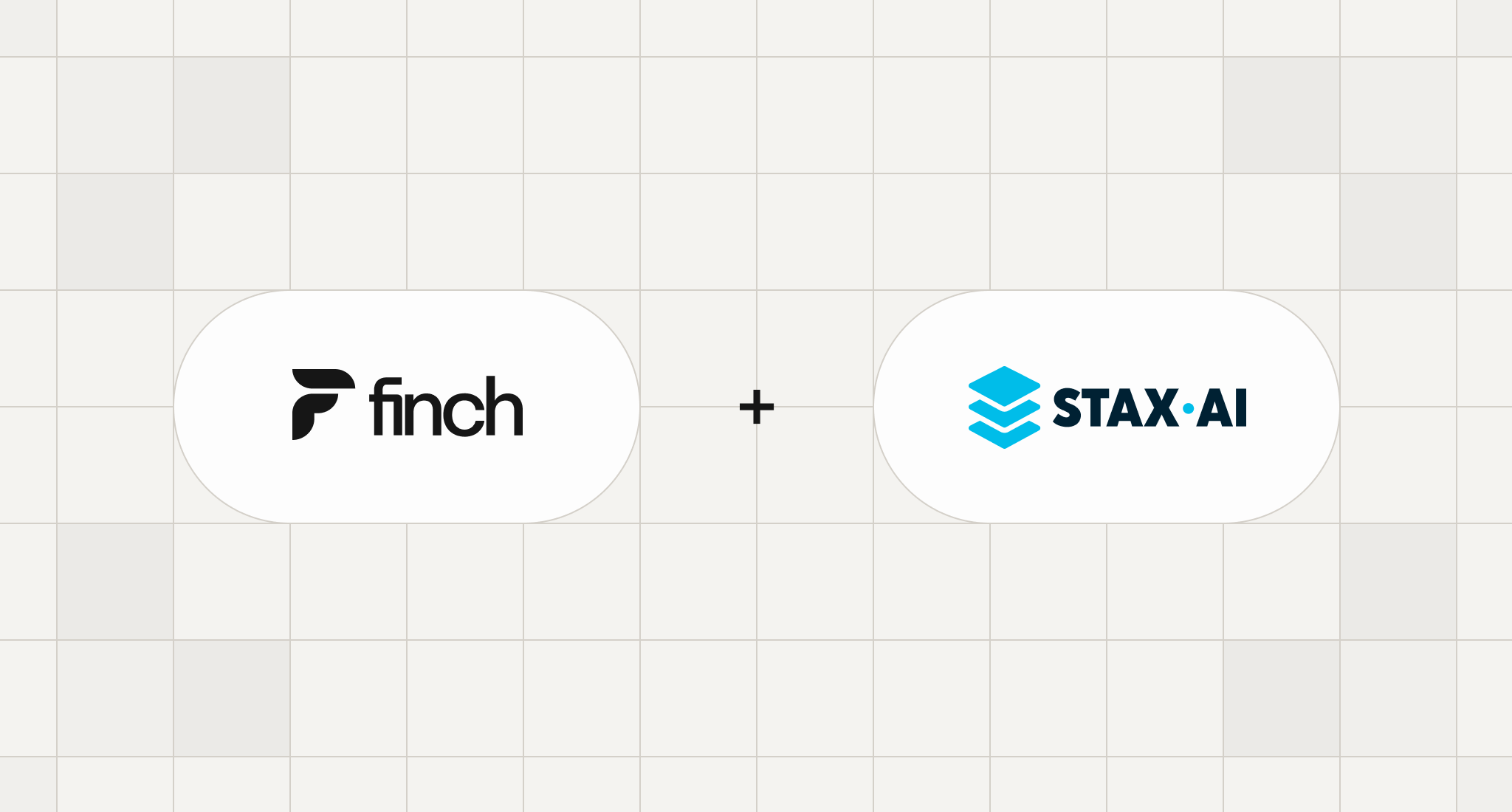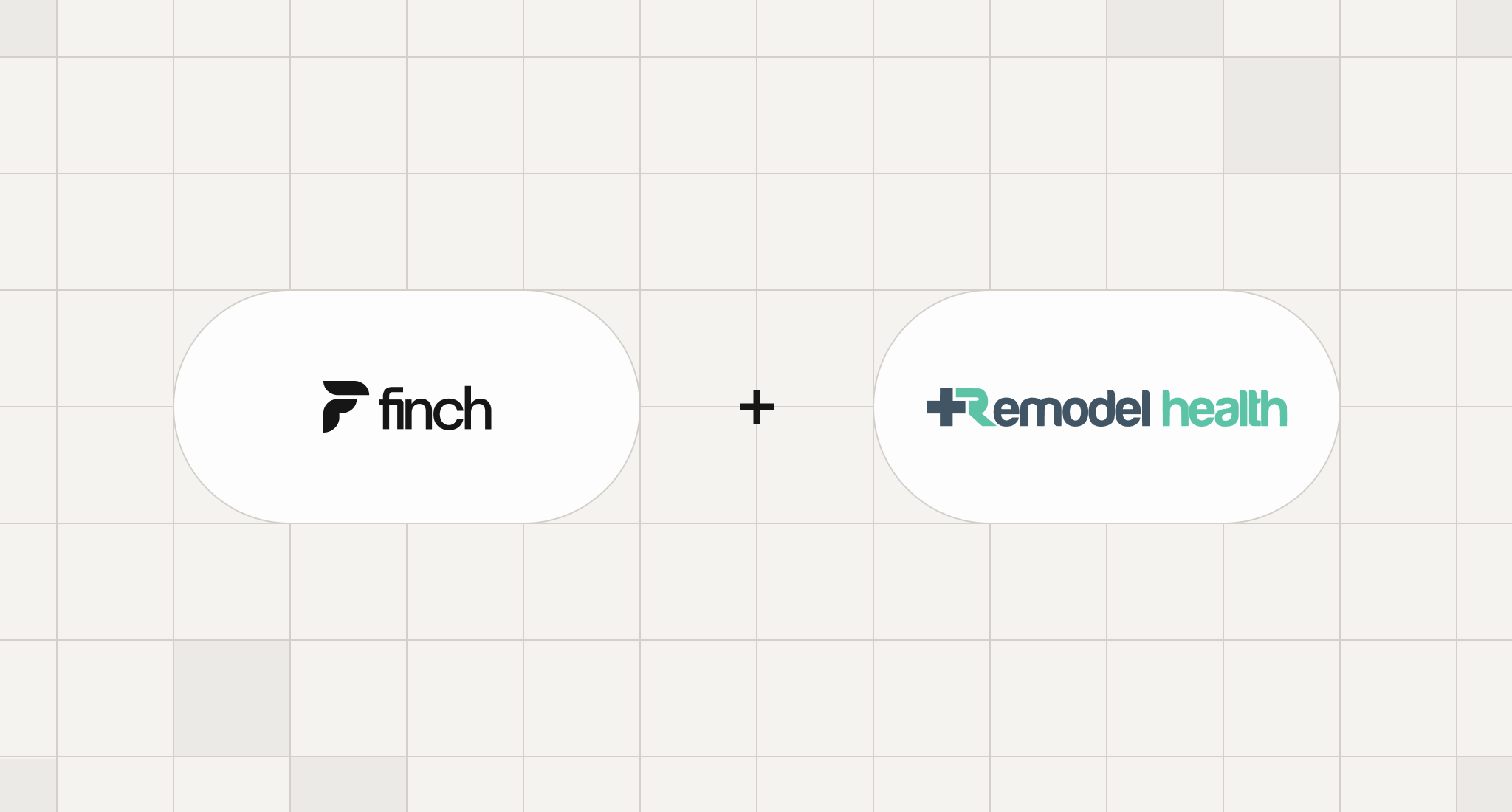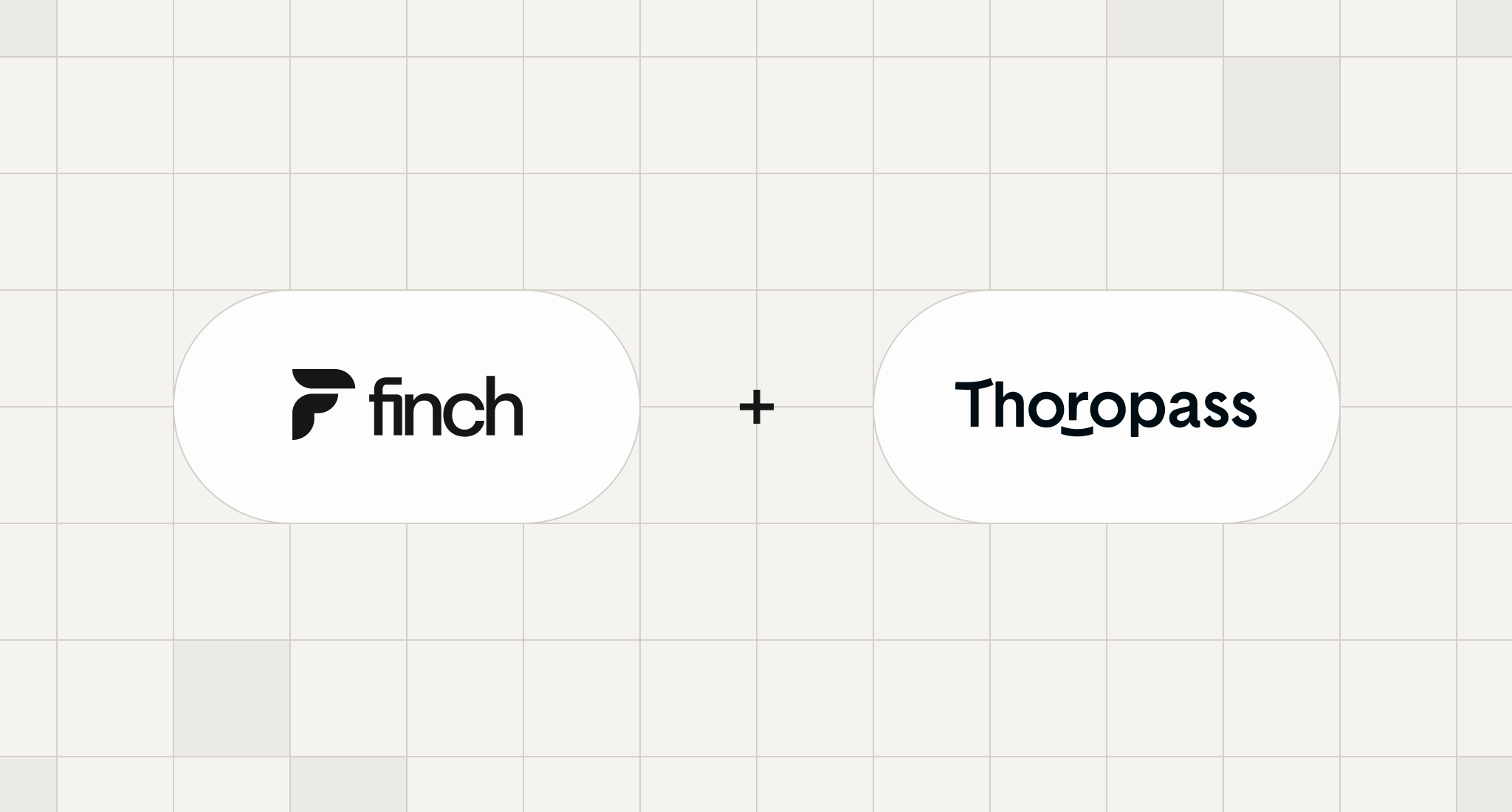
Powering integrations for hundreds of platforms
























Build with confidence
Why developers love building with Finch

Market-leading coverage
Instantly support 180+ systems (and counting) compatible with our normalized data structure and as we add new systems, turn them on with one click.

Enterprise-grade security
Trust Finch’s infrastructure that enforces TLS 1.2 for data in transit and encrypts data at rest using AES 256 bit encryption.

Read and write functionality
Seamlessly read company, census, and payroll data, while writing deductions and benefits contributions changes directly into the source of truth.

Best in class developer experience
Integrate Finch in hours with just a few lines of code and turn on the ability sync data with employers in as little as 30 seconds.
Unified API
One API to unite every provider
Finch standardizes employment data across every provider. So you don't have to.
- Company
Read basic company data including legal name, EIN, bank accounts, entity type, and locations.
Read the company API - Directory
Read company directory and organization structure including the names of individuals and the reporting structure.
Read the directory API - Individual
Read individual data including name, email, phone number, date of birth, and residence.
Read the individual API - Employment
Read employment data including income, employment type, start date, end date, and location.
Read the employment API - Payment
Read all payments made the company including pay date, pay periods, and gross and net pay.
Read the payment API - Pay Statement
Read all data on a specific pay statement including earnings, deductions, and taxes.
Read the pay statement API - Benefits
Read and write benefits information, including creating benefits and enrolling individuals.
Read the benefits API
Customer Stories
You’ll be in good company

Stax.ai Transforms TPA Operations with 80% Integration Adoption, Happier Sponsors
Integrations
Access the global employment ecosystem
Create a best-in-class experience for your users today.




















